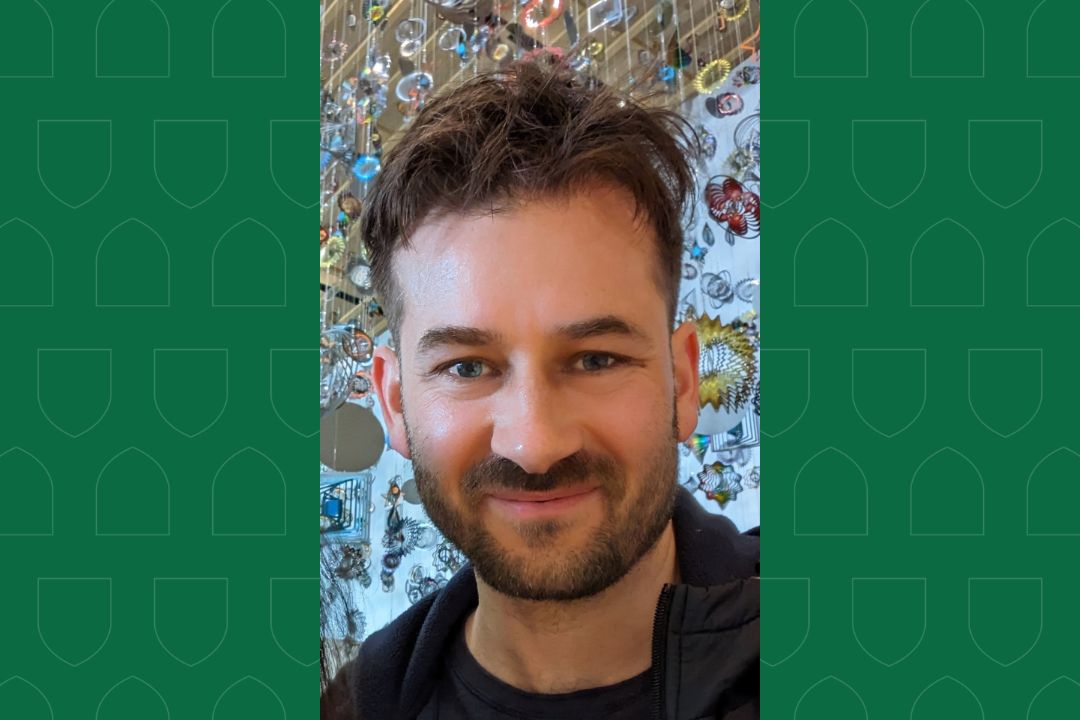
Transforming education through experiential learning
Dr. Luke Heidebrecht (PhD'22) describes his academic journey as organic.
By Julie Barnes“I started my PhD work in curriculum studies here at the College of Education in 2016, and that piggy-backed on a project related to the impact of international experiential education on hosting communities in Central America.”
That project brought him to El Salvador, Guatemala and Nicaragua, where he studied how immersive educational experiences impact both students and local communities.
“One of the wonders in this project was that we know experiential education is beneficial for students. It displaces them from their norms, it’s more engaging, and there’s an emotional quality to it that I find really compelling for the student experience,” he says. “But, we wanted to add a social justice, decolonial lens when examining that, and to consider not only the benefits for students but the positive and negative impacts on community hosts as well.”
Midway through, the research team shifted its approach, integrating an Indigenous perspective into the research design. They sought to apply a decolonizing lens to experiential education while also recognizing the broader impact on Indigenous communities. This included examining the power dynamics between researchers—who often represent settler colonialism—and participants who were of Mayan ancestry.
Heidebrecht’s passion for research design grew from realizing that research methods—whether structured interviews or conversational approaches—“make such a difference in terms of types of responses and knowledge that people are willing to share,” he says.
That insight became the focal point of his dissertation research.
“The way I started to pursue academics was more methodologically driven. I was very curious about alternative, non-traditional approaches, which were very relational—recognizing that dynamics of trust building lead to a completely different set of data.”
His four years with Pewaseskwan (the Indigenous Wellness Research Group) at the University of Saskatchewan’s College of Medicine reinforced his commitment to community-led research.
He and his colleagues facilitated research activities that worked collaboratively with participants.
“A focus of our methodology at the time was considering comfort and safety and trying to diminish the (typical) researcher-participant power dynamic,” he says.
The diversity of perspectives made for a rich workspace, says Heidebrecht. “There was an openness to share our experiential historical ancestry and how all that impacts you as a researcher.”
Writing for a wider audience
Now a newly-appointed assistant professor in the Department of Educational Foundations, Heidebrecht believes academics need to be considerate of their audiences—beyond other scholars and researchers—when it comes to writing.
“Academic writing as a format has been limited—I am interested in creating works that someone will pick up and read and find compelling and engaging,” he says, “on an emotional level.”
He has developed a writing style that is more conversational, prioritizing accessibility and comprehension. His writing often weaves in participant voices through their own poetry and storytelling.
Experiential learning and Pedagogies of Place
Experiential learning prioritizes hands-on, immersive experiences over passive instruction.
“It’s learning by doing,” says Heidebrecht. “it’s about displacement, whether it’s context or format of learning and that little bit of displacement helps students with ownership—they are able to re-story themselves as learners.”
He adds, “When you give students an experiential opportunity, some of their other peripheral skills that aren’t always identified or championed within the school system get to float to the surface. I see it as a very learner-centric approach to teaching.”
Heidebrecht began teaching grad classes at the University of Saskatchewan in 2018 and started teaching Pedagogies of Place, a core class, this January.
“Pedagogies of place is context-based learning,” he says. “It’s about how we consider places and spaces as an essential component of our teaching.”
Whether reimagining classroom layouts to foster collaboration or moving the classroom outside, the class emphasizes the importance of context in teaching.
Heidebrecht recalls the excitement of field trips as a child, noting that they were rare but memorable.
“We went to Batoche and learned some part of our history there, and those are the things that stand out in my memory—those experiential things. Because, neurologically speaking, we’re wired to forget things that are repetitive,” he says. “It all blurs together.”
He wants his students to consider the potential of experiential education “for creating memory, and therefore, learning.”
He also hopes they reflect on how placemaking can shape student engagement, comfort, and safety.
“Are you a teacher who stands at the front or moves around and speaks with your students? What kind of art hangs on the walls? Do you take your students outside onto the school grounds and beyond? Do you get them to move their bodies?”
When learners are recognized as holistic beings, and if they are “moving and connected with one another, they become more engaged and the content of the class has a different way of being digested,” he says.
Heidebrecht understands that new teachers don’t want to feel like they’re just “blasting content at students” and placemaking can make teaching more engaging for both teachers and students.
“You have to enjoy what you’re doing, and I think that will, by nature, make you a better teacher,” he says. “You gotta have fun, right?"
Article originally published at https://education.usask.ca


